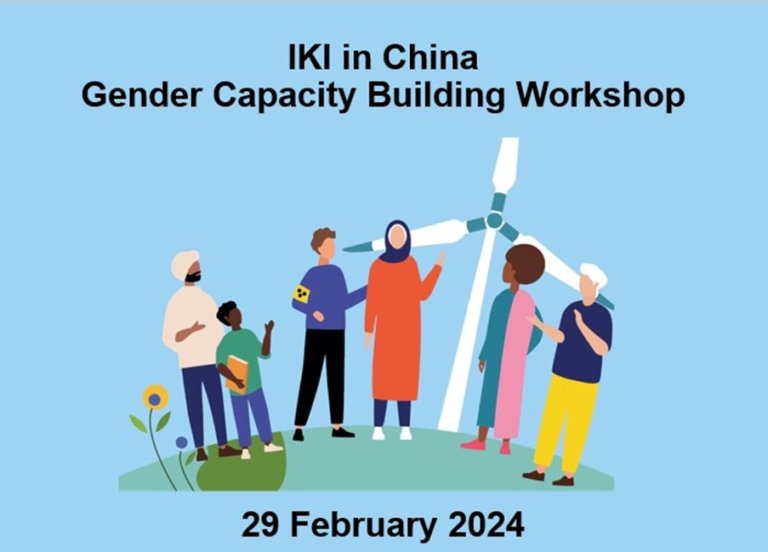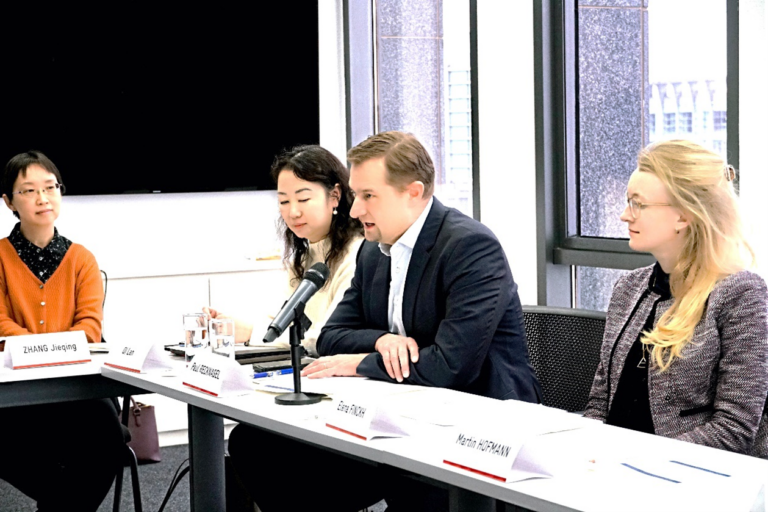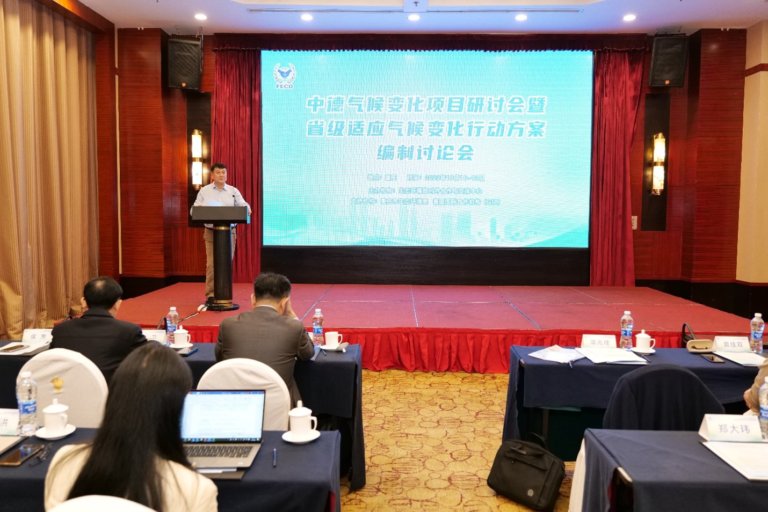Juliette de Grandpré, an expert from NewClimate Institute (NCI), visited Beijing in October 2023 to engage in discussions with Chinese institutions regarding the latest developments in EU climate policy.
First, Ms de Grandpré conducted a training session on the developments of the EU’s Carbon Border Adjustment Mechanism (CBAM) and the Emissions Trading System (EU ETS) on 16 and 17 October. The training was held in Beijing for the staff from various departments, bureaus, and subordinate units of the Ministry of Commerce (MOFCOM), stimulating numerous intriguing questions and lively discussions, reflecting a keen interest and engagement from the Chinese officials in understanding these EU policies.

On 20 October, Ms de Grandpré attended the Sino-German Climate Change Policy Exchange Seminar. This event, co-hosted by GIZ and the National Center for Climate Change Strategy and International Cooperation (NCSC), featured discussions on the EU’s and China’s ETS and CBAM. It saw active participation from experts across various Chinese institutions such as the Chinese Academy of International Trade and Economic Cooperation, the National Energy Conservation Centre, and the China Quality Certification Centre. Ms de Grandpré and her colleague Mats Marquardt from NCI kicked off the seminar by introducing the audience to the EU’s CBAM and its implications for China. Afterwards, Mr Yu Shengmin from NCSC offered insights into China’s carbon market, before the event was wrapped up by concluding remarks from Mr Ma Aimin, deputy director of NCSC.

Officially proposed by the European Commission in July 2021, CBAM is a critical component of the EU’s strategy in addressing climate change. Introduced as part of the EU’s Fit for 55 legislative package, it is designed to complement the EU ETS by applying a carbon price on imports of certain goods from outside the EU, in order to prevent carbon leakage amid an accelerating phase out of free allocations of EU allowances. This mechanism could significantly impact China, a major EU trading partner, particularly affecting exporters in energy-intensive sectors such as steel, cement, and aluminum. These sectors are likely to face increased costs and competitive challenges in the European market if they do not align with the carbon reduction targets.
Juliette De Grandpré’s visit to Beijing in October 2023 provided an opportunity for in-person dialogue and exchange of views on CBAM and ETS between European experts and Chinese stakeholders. This exchange aimed at fostering a mutual understanding of the challenges and opportunities presented by the CBAM and exploring ways in which China and the EU can collaborate to achieve their climate goals while maintaining fair and equitable trade relations.



